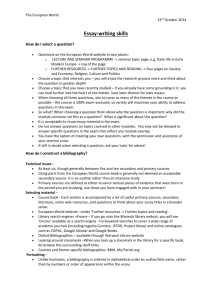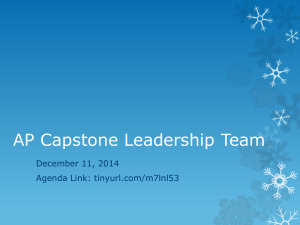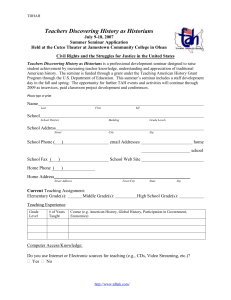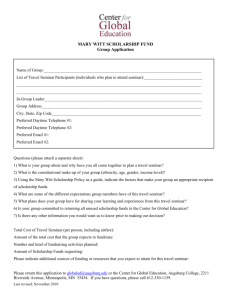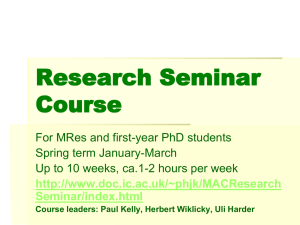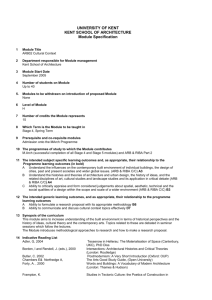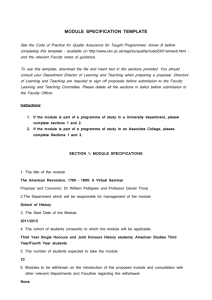IGRH Seminar 1 Handout 2015
advertisement
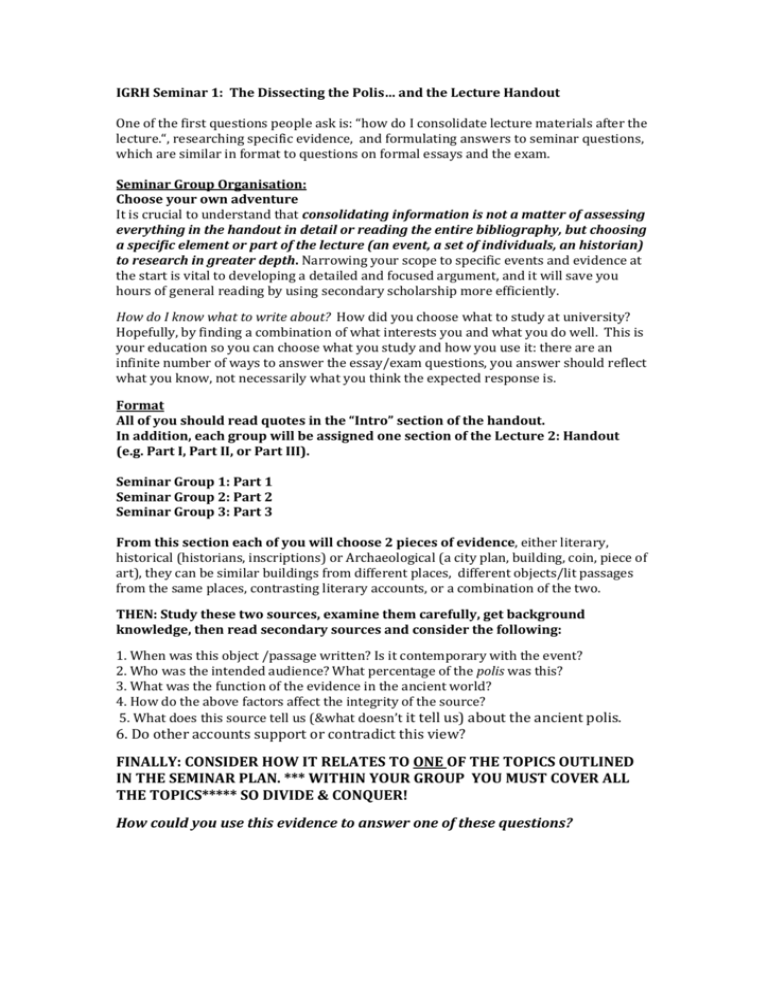
IGRH Seminar 1: The Dissecting the Polis… and the Lecture Handout One of the first questions people ask is: “how do I consolidate lecture materials after the lecture.“, researching specific evidence, and formulating answers to seminar questions, which are similar in format to questions on formal essays and the exam. Seminar Group Organisation: Choose your own adventure It is crucial to understand that consolidating information is not a matter of assessing everything in the handout in detail or reading the entire bibliography, but choosing a specific element or part of the lecture (an event, a set of individuals, an historian) to research in greater depth. Narrowing your scope to specific events and evidence at the start is vital to developing a detailed and focused argument, and it will save you hours of general reading by using secondary scholarship more efficiently. How do I know what to write about? How did you choose what to study at university? Hopefully, by finding a combination of what interests you and what you do well. This is your education so you can choose what you study and how you use it: there are an infinite number of ways to answer the essay/exam questions, you answer should reflect what you know, not necessarily what you think the expected response is. Format All of you should read quotes in the “Intro” section of the handout. In addition, each group will be assigned one section of the Lecture 2: Handout (e.g. Part I, Part II, or Part III). Seminar Group 1: Part 1 Seminar Group 2: Part 2 Seminar Group 3: Part 3 From this section each of you will choose 2 pieces of evidence, either literary, historical (historians, inscriptions) or Archaeological (a city plan, building, coin, piece of art), they can be similar buildings from different places, different objects/lit passages from the same places, contrasting literary accounts, or a combination of the two. THEN: Study these two sources, examine them carefully, get background knowledge, then read secondary sources and consider the following: 1. When was this object /passage written? Is it contemporary with the event? 2. Who was the intended audience? What percentage of the polis was this? 3. What was the function of the evidence in the ancient world? 4. How do the above factors affect the integrity of the source? 5. What does this source tell us (&what doesn’t it tell us) about the ancient polis. 6. Do other accounts support or contradict this view? FINALLY: CONSIDER HOW IT RELATES TO ONE OF THE TOPICS OUTLINED IN THE SEMINAR PLAN. *** WITHIN YOUR GROUP YOU MUST COVER ALL THE TOPICS***** SO DIVIDE & CONQUER! How could you use this evidence to answer one of these questions? Some tips for Consolidating Choose wisely: When selecting a topic or piece of evidence for consolidation, consider its virtues across the spectrum: what questions could it answer (it can be helpful to look at formal essay questions to think of how you would use a piece of evidence). Use the Index!!!: For Historians like Herodotus & Thucydides, the index in a published translation (The index to Holland’s recent translation of Herodotus’ Histories is excellent or a Penguin edition will do) can be very helpful. Similarly large books can be daunting, use the index to narrow the scope to personal names, places, and dates. Feel free to start on the internet, but Caveat Lector: General websites and search engines are good for looking up basic information on sites, historic figures, historians or events, often providing links to more erudite books and articles. However, while offering an expedited path in searching for an answer, the internet is seldom sufficient for providing a detailed answer on its own. Ebooks (remotely accessed books from the library) and JSTOR (online journal access) are always available. If you haven’t already learned to use these resources: start NOW! Be sure to move on to specific books and articles: It only takes one good book or journal articles to connect you with dozens of other sources and evidence (cf. footnotes and bibliography). The library is still a wonderful place to find the book you didn’t know you needed, just by browsing in the right section. Use secondary sources carefully: A first instinct is often to start reading the experts. This can be dangerous, however, if you end up accepting someone else’s argument instead of formulating your own. You may be better off to start with a piece of evidence, forge your own interpretation, and then support it with secondary scholarship (which will often affirm, enlighten, but not necessarily change your original opinion). Molly Weasley gave some good advice: never trust anything that can think for itself if you can’t see where it keeps it brain. Standing on the shoulders of greatness (e.g. quoting Sir John Boardman on colonization) provides a lovely vista; but in an exercise that is designed to show what you know (like a essay or exam), it can be less effective. While Cartledge’s observations about Sparta may support your argument, be careful of citing his analysis (especially in general terms: e.g. Spartans do this..) without discussing/ analysing the evidence upon which this opinion is based. An argument without specific evidence to support & illustrate it, is going to be a weak one, no matter how many secondary scholars are cited.

